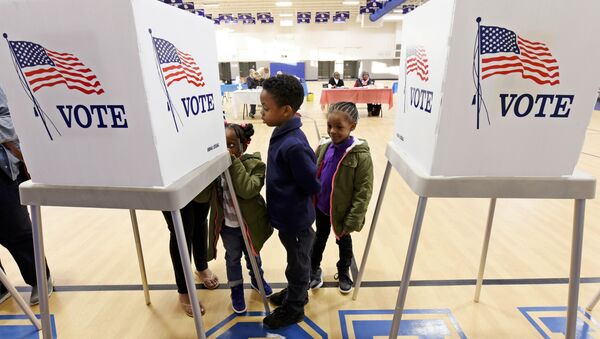Sputnik: So from these revelations, we know that George Nader, an emissary for United Aram Emirates and Saudi Arabia, said that both Gulf monarchies were keen to see Trump in the Oval Office. What did they see in him that perhaps they didn’t see in other candidates, such as Clinton?
Sandeep Gopalan: I think the revelations by the New York Times of this meeting involving Erik Prince, the Israeli social media analyst, George Nader the person representing these two princes that you reference, has many elements that probably need to be disentangled before you understand why or what the motivations were for the UAE and the Saudis to be interested in Trump.
One is the legal dimensions of it, which pertain to whether foreign nationals can intervene in US elections, or influence the outcomes through contributions, financial contributions, or otherwise.
And then there’s the element around why Donald Trump Jr would meet with these people, and what does that signal around the campaign’s willingness to engage with characters of various descriptions in terms of the probity etc. Then we get to why the foreign parties are so interested in Trump, and what are they seeking to get out of it?
All of these have various sets of answers, which have very very different significances in terms of legal liability etc. With regards to the motivations for the Saudis and the UEA, the Abu Dhabi prince, again, we can only speculate based on what we know about the strategic interests of these countries. Both of these countries, Saudi Arabia and the UAE, have strategic postures that are att odds with Iran, for instance, which plays out in conflicts in Syria in Yemen and within the broader Middle East.
So it’s obviously open to conjectures that one of the potential goals for the Saudis and the UAE to be interested in dealing with the Trump campaign as opposed to the Clinton campaign, was Trump’s more likely predilection to favour their strategic interests based on his well-publicised statements published over a number of years.
So to recollect, Trump had issued various kinds of statements against Iran; he had very senior members of his campaign staff, including Michael Flynn, who were well opposed to Iran for a long time. And of course, there were Trump’s own business interests, which coalesced with the interests of the Saudis and the UAE, or various commercial parties in the UAE.
So, I think we can infer that both of these countries had something to gain, in a much more tangible form, with the Trump campaign than they potentially might have, at least thought, which the Clinton campaign.
Sputnik: Also attending the meeting was an Israeli, widely reported as basing an expert in “social media manipulation.” Why might some Israelis have preferred Trump to Clinton who, let’s be honest, has always been a staunch defender of Israel?
Sandeep Gopalan: It’s a very good question. I think there are multiple elements to that question as well. The person that you referenced, Joel Zemal, is a social media expert and at least in the details of the meeting that we know so far, what we know is that there was a presentation of some sort that was put together to suggest that social media could be deployed to help the Trump campaign. We don’t know what if anything was done with that proposal.
What we know from the disclosure from Donald Trump Jr is that he refused to engage with this individual, after the meeting and kind of dismissed it. His explanation at least, Don Trump junior’s explanation for what we know from the Times reporting, is that he described it as some sort of proposal to do with the social media platform, which was not to his interest, and therefore was given short shrift. But the interesting thing comes from a further disclosure, which is around Nader, George Nader, the Middle Eastern broker, for want of a better word, allegedly made a payment of about $2 million within a few months, to this Israeli.
So the question becomes, what is the purpose of that payment? And if the payment was made in connection with something to do with the Trump campaign potentially there’s a violation of US election laws.
Sputnik: Robert Mueller’s investigation into accusations of Russian collusion with Trump campaign – for which no decisive evidence has yet been produced – continues, but surely it has become pretty clear by now that other states, especially the Gulf monarchies and some Israelis, intervened or intended to influence the campaign in Trump’s favour. Why do you think there’s much less focus on this than there is on Russia, despite the evidence?
Sandeep Gopalan: That’s a great question, and I think again this bogeyman of Russian interference has been constantly bandied about. Even now, depending on who you listen to, a lot of the media is obsessed around the Russian connection to these individuals. For example, a lot of the media is reporting that George Nader also has connection with various Russian parties who are connected to various business individuals.
There are many people who pointed to Erik Prince who was the brother of the education secretary who actually arranged this meeting, having connections with various Russian parties, and so on. There is still this endeavour by people connected with the Democratic Party to portray this as somehow connected to Russia, rather than focusing on the fact that other countries might also have sought to influence the election.
This is no surprise. The reason why the US has laws against foreign interference is precisely because many countries try to involve themselves in US politics. It’s no secret.
The views expressed in this article are those of Sandeep Gopalan and do not necessarily reflect the official position of Sputnik.



